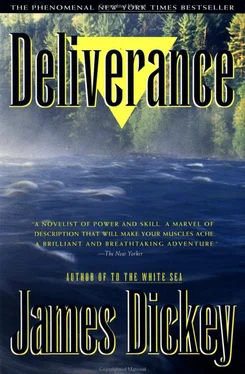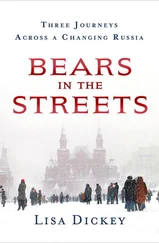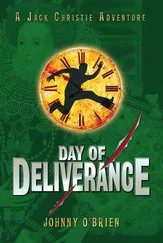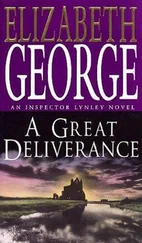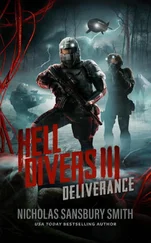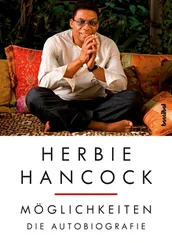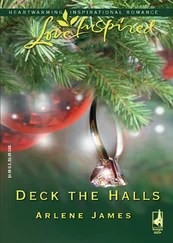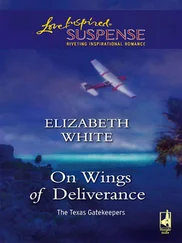Movies and pictures of Indians on calendars gave me a general idea of what to do, and I waved the paddle slowly through the water, down and along the left side of the canoe. The nose with Drew in it—I saw now that moving him to one side or the other, to turn the canoe, was going to be a big part of the problem—swung heavily out toward midstream, where the current began to pick us up and move us a little faster. The sensation of pure riding could not have been greater though we were doing not much more than drifting, bogged with the weight of gear, and with uncertainty. Downstream, Lewis and Bobby were hardly any better off, their strokes uncoordinated and helpless, though Lewis was trying. I supposed that he was letting Bobby get the feel of the water, and find which side he would rather paddle on. I told Drew to keep his paddle on the right, and we tried a few sweeps together, running over a very shallow place where the water quickened and broke and foamed over gray-brown gravel. We rocked and scraped on the stones.
“Go ahead and try a little stronger pull,” I said. “We’ve got to find a way to make this thing move like we want it to.”
He dug in, and I swept with him. We settled into a good motion that moved us toward a curve. Once or twice my paddle hit the bottom-rocks; this put an odd, dissonant, intimate feeling into my bands. We started into the curve just as the other canoe disappeared around it. I plowed a little harder to turn us exactly with the current. Drew glanced back, his glasses flashing, the life preserver not turning. His face-side had a big grin. “Hey, hey,” he said. “How about this?”
“How about it, is right.”
As we straightened out of the curve I had a quick sensation of something wrong. Either the river was wrong or the green canoe was. Lewis and Bobby were traveling broadside to the gentle water, and Lewis was doing his best to bring the bow around. Bobby was totally confused, as nearly as I could tell, though he was trying to help. But they were going down the river backward. Drew put his hand over his face. I thought of hollering something to Lewis, but I couldn’t bring myself to do it. Sometimes I could laugh at him, but I felt that it wouldn’t be right to do it now. Drew and I rested, the paddles pulled up, keeping our mouths shut. The stream was with us, and we could watch. Bobby quit trying to paddle, and Lewis, by the sheer desire to do it, managed to swing the canoe broadside again, but just as he lifted it side-on to the current a paired set of rocks stopped it. Lewis banged and shoved at the rocks with his paddle and with his hands, and then tried to hunch the canoe free with his weight. Finally, though, he stepped off into the river and took hold of the canoe. Drew and I came alongside and I backwatered. On impulse I got out to help. Lew and I hauled and shoved, with Bobby sitting in the bow with his face absolutely perfect as an expression of dead weight.
Loading the canoe, I had not really been aware of the water, but now I was. It felt profound, its motion built into it by the composition of the earth for hundreds of miles upstream and down, and by thousands of years. The standing there was so good, so fresh and various and continuous, so vital and uncaring around my genitals, that I hated to leave it.
“Let’s have a beer,” I said.
Lewis wiped off the sweat and rummaged around under the tents and the tarps. He came up with four twelve-ounce cans of beer from a polyethylene sack of melting ice, and we hung our forefingers in the rings and dragged them open. We were all thirsty from the work and anxiety of the loading, and my thirst and Lewis’ went all the way back to the Griner Brothers’ Garage, where I had shed more liquid than I thought I had in my system. I drank the whole can in one long, unhurried epical swallow.
I looked around. We were in the middle of a farm that backed steeply up on the river on two sides, one more than the other, and seemed to be battling the woods for existence. In a gully to my right as I faced downstream a cow was drinking; on top of a little grassy bluff others were lying down. Cow dung shone in the late heat, and there was a small misty, insane glimmering of insects wherever it had fallen.
I held the wavering color of the can under water until it filled enough to sink, and let it go, down and on past my ballooning nylon legs.
Lew and I started the canoe off the rocks with one three-armed shove, and I climbed back in with Drew. We entered a long straight stretch, moving with the fresh sweat that had sprung up from the beer as much as with the current.
The land on both sides climbed, and the river pulled us steadily toward a silver highway bridge. We went under, and the bridge clattered its boards as a pickup truck went over.
We were civilized again. On the right bank some tin sheds backed down to the water; the mud was covered with rusted pieces of metal, engine parts and the blue and green blinks of broken bottles. But there was something worse than any of this; some of the color was not only color; it was bright, unchangeable. Drew had been hit the same way, for another reason. “Plastic,” he said. “Doesn’t decompose.”
“Does that mean you can’t get rid of it,” I said, “at all?”
“Doesn’t go back to its elements,” he said, as though that were all right.
In the dark light the broken plastic pitchers shot out their rays like batteries. One was orange, one was yellow, and a water container was blue; what Martha, referring to clothes, would have called electric blue. The plastic throwaways were invulnerable in their colors, amongst the split, splintering boards and the brown-gold tin cans in the mud flats under the town, their lids prised-up and cruel, but going back to the earth.
The sky was beginning to smoke up with night, with complete, unlighted night. For a little while I thought that was the reason the water didn’t have the clean sparkle, the deep milk-but-clear that it had had when we got on it. The current lacked the arrowy drive, the sense of purpose that bad been part of it in the willow woods. There was something in the texture of it.
I pulled my paddle out of the water; a white feather was stuck to the end of it. I shook it off and peered into the river. Off to the right and getting ready to go by under water was a vague choked whiteness. It was a log completely covered with chicken feathers, with all the feather-hairs weaving and wavering in a perfect physical representation of nausea. When you are sick enough, I said truly to myself, that is the thing you feel.
“There must be a poultry processing plant in this town,” Drew half turned and said.
“Sure.”
The river was feathering itself night and day. The rocks were full of feathers, drift on drift; even the downriver sides were streaming and bannered with them. Every shape under the river was a sick off-white; the water around us was full of little prim, dry feathers curled up like things set sail by children, all going at about the same speed we were. And out among them to the right, convoyed by six or eight feathers, was a chicken head with its glazed eye half-open, looking right at me and through me. If there had been more heads it would not have been so remarkable, but I saw only the one, going with us, turning its other eye as though the result of a movement of its gone body, drinking the sad water with a half-opened bill, pinwheeling and floating upside down, then turning over downstream again. I half hit at it with the paddle flat, but it only moved off a foot or so and settled back into the current beside us.
On a patchy flow of feathers we went down, over the unplucked rocks and logs in the deep, slow water, and I was resigned to going along that way for a while until I noticed, for no particular reason, that the depth of my ears was increasing in some way. I concentrated, and the sound of water both deepened and went up a tone. There was another bend ahead, and the river seemed to strain to get there, and we with it.
Читать дальше
